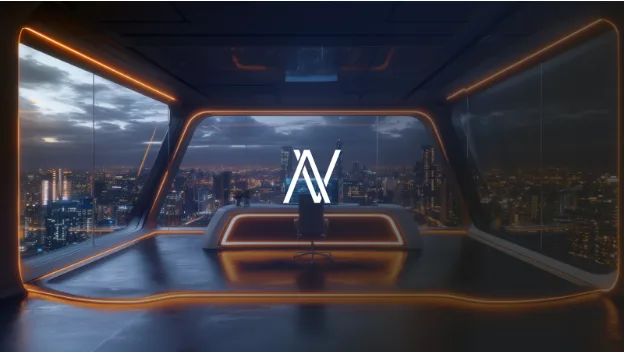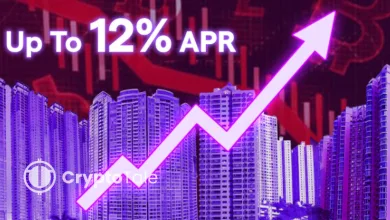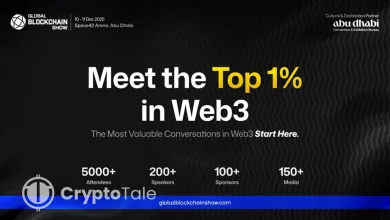Trust Without Middlemen: How Web3 Rebuilds Digital Confidence with Alessio Vinassa

Trust is the invisible currency of the digital world. Every time we sign in, share data, or make a transaction online, we trust that the system will work — that our identities are protected, our data is secure, and our intentions are honored. But what happens when that trust is broken?
Over the past decade, scandals involving major platforms, data leaks, and opaque algorithms have steadily eroded public confidence in centralized institutions. Users, entrepreneurs, and even global businesses are increasingly asking a hard question: Is there a better way to build digital trust?
The Collapse of Traditional Digital Trust
In the Web2 model, trust is concentrated:
- Tech giants hold the keys to our identities and data.
- Payment processors decide who gets access to financial services.
- Platforms can unilaterally censor or deplatform users.
This centralization works — until it doesn’t. And when failures happen, users have little recourse. For entrepreneurs building across international markets, the risks are even higher. Trust becomes fragile, inconsistent, and difficult to scale.
That’s where Web3 enters the conversation, offering not just a technological fix, but a philosophical shift in how trust is formed, maintained, and scaled.
How Web3 Reinvents Trust
In Web3, trust is not requested — it’s verified.
The core features that enable this include:
- Blockchain: Every transaction is recorded immutably and transparently.
- Smart contracts: Agreements are executed automatically without requiring a third-party enforcer.
- Decentralized identity (DID): Users own and manage their own credentials, reducing reliance on centralized logins.
This model empowers both users and businesses to interact confidently — because trust isn’t granted by an authority, it’s embedded in the system itself.
As Web3 visionary Alessio Vinassa explains:
“In the next stage of internet development, trust will be algorithmic, not anecdotal. We’ll no longer have to rely on someone’s reputation or promises — we’ll verify it ourselves.”
Building a Trust-Based Economy for Entrepreneurs
Trust isn’t just a buzzword — it’s a foundational pillar for business growth, especially in a global, digitally native economy. In traditional systems, trust must be earned over time through relationships, credentials, and often, intermediaries. That creates friction.
In a Web3-powered ecosystem, however:
- Startups can build trust instantly through open code and transparent governance.
- Entrepreneurs can launch projects with distributed teams without requiring a centralized headquarters.
- Communities can make decisions democratically and enforce them through smart contracts.
This shift dramatically lowers the cost and time of establishing trust, which in turn accelerates development and innovation, particularly in international contexts where traditional business infrastructure may be lacking.
Alessio Vinassa has long emphasized that decentralized systems are ideal for the next wave of entrepreneurship:
“When you remove friction and add transparency, you create a foundation for businesses to grow faster — and grow globally.”
Real-World Use Cases That Inspire Trust
Some notable applications of trustless systems include:
- Cross-border payments using decentralized finance protocols, where the rules are written in code and transactions settle in minutes.
- Supply chain tracking, where consumers can verify a product’s origin directly through blockchain records.
- Decentralized voting systems, enabling tamper-proof decision-making in communities or DAOs.
These are not just conceptual — they are already being used by businesses, nonprofits, and governments to build trust at scale.
Key Takeaways
- Centralized systems have led to a trust crisis online. Web3 offers a new model based on verification, transparency, and decentralization.
- Entrepreneurs benefit from faster onboarding, transparent operations, and reduced reliance on gatekeepers.
- Alessio Vinassa advocates for algorithmic trust as the foundation for international development and next-generation platforms.
Decentralized identity, smart contracts, and public ledgers are reshaping how individuals and businesses engage with each other online.
Conclusion
The internet has always relied on trust — but in Web3, trust becomes programmable. That shift doesn’t just impact technology; it transforms business, governance, and the way communities organize themselves.
For modern entrepreneurs, particularly those building in international markets, this offers a rare combination of freedom and assurance. When you don’t have to trust a platform, because you can verify the system, you move faster, with more confidence — and more impact.
To know more about Alessio Vinassa and his business philosophies, visit his website at alessiovinassa.io.
You can also find and follow him on the following social platforms:
Instagram – @alessiovinassa.business
Facebook – Alessio Vinassa Business
X (Twitter) – @vinassa_alessio
Next in Series:
“The Philosophy of Open Source and Community-Led Innovation in Web3”
How the open-source mindset powers global collaboration and drives progress in the decentralized era.
Disclaimer: CryptoTale does not endorse any views related to the Sponsored content published on the platform. We do not guarantee the accuracy or reliability of the information provided. Readers should conduct independent research and exercise their own judgment. CryptoTale is not liable for any damages or losses caused by relying upon the content.




